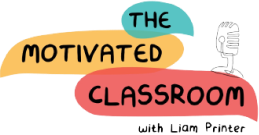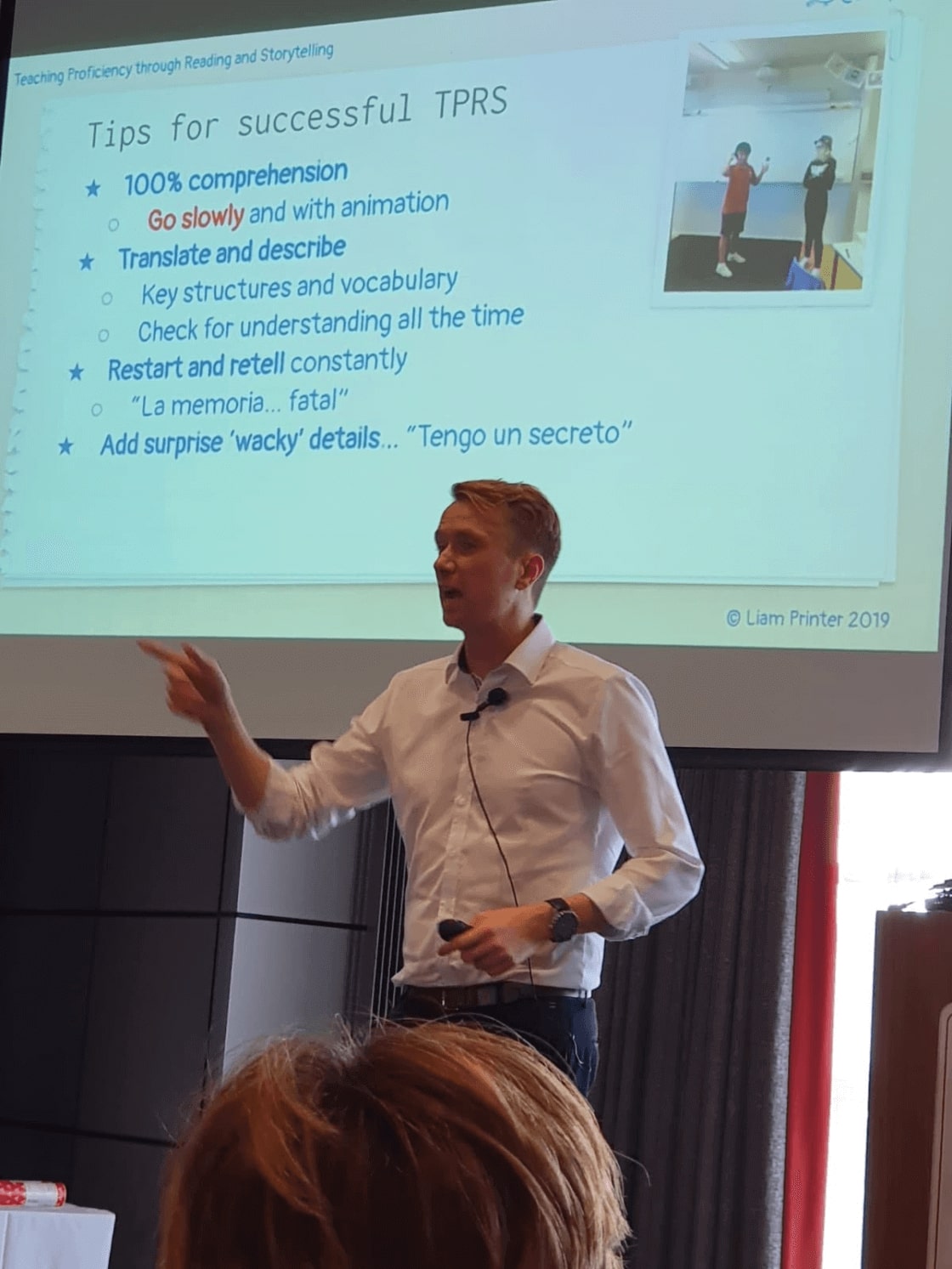Many of the wonderful listeners of The #MotivatedClassroom podcast have been getting in touch to ask for examples of what students writing output looks like given that I focus primarily on lots of compelling, comprehensible inputs with little or no formal grammar tests or tasks, worksheets or vocab lists, particularly in first two years.
Below are some examples of my Spanish Year 9 students 'timed write' from April this year. This is a mixed ability class (no high/low sets or streaming) of students who were mid way through their second year of Spanish with me. They are 13-14 yrs old and in total have had 1.75 years of Spanish. Each week they have four 45 minute lessons of Spanish. After one week of doing a TPRS (Teaching Proficiency through Reading and Storytelling) co-created story with them, at the end of the fourth class class I asked them to write as much as they could remember of the story in 5 mins. They had no prior warning, no studying beforehand, no memorization tasks, no drills or worksheets. They had just been immersed and involved in the story creation for a week with me. The story is typically 'asked' in short 5-10 minute blocks, then students will interact with it by drawing scenes and retelling them to their partner, answering questions from the teacher, miming scenes and discussing, reading back on it with images etc. Then the plot continues and they are intently listening to see what happens next whilst also providing ideas for the details in the story, as well as some of the more extroverted students are helping me by acting it out.
After exactly 5 minutes of writing their 'timed write', they stop. There is no correction of mistakes or individual feedback on this writing. Accuracy is not the goal. The goal is fluency, competence, proficiency and confidence. So, they just count the words to see how much they were able to write from memory of their own co-created story. They are often shocked and pleasantly surprised by how much they can write with no preparation. As the teacher, I read through them all very quickly, looking for common, collective errors and use these to inform my teaching for the upcoming classes. If many students have not mastered one of my key structures, then clearly they need more repetitions of it in the next class, more personalised questions about their lives, more inputs.
Although tempting to only post the 2-3 best examples (as I have done in the past!), for authenticity this time I selected a random range of 11 examples from a class of 24. Through this range of exemplars I wanted to show you how a story can be internalised, acquired and 'learned' by all students; how stories reach all learners and just those we consider most motivated or driven to succeed. For the Spanish teachers reading this, my target structures with this story were "siempre ha querido; nunca ha probado; aún no ha logrado" (has always wanted; has never tried; still hasn't achieved). While I have my skeleton script idea of how the story will progress, it was the students who contributed the names, places and details while acting it out. This raises their autonomy. They feel ownership over it. They feel they created it. They feel it is "their" story. So they remember it and can re-tell and write it with no prior practice activities. Sure, there are some errors. Of course there are. Accuracy and grammar form are not the goal here... but they are a very pleasant by-product of compelling inputs and intent listening! The goal is confidence, fluency, proficiency, enjoyment and motivation for Spanish. Worksheets and grammar accuracy can come later, once they have listened to and read loads of compelling, comprehensible, input first!
In these early stages, the first two years in particular, we do not need to 'drill' outputs for accuracy. It is the interesting, compelling inputs through stories that lead to the proficient output from all learners and not just some! There is a different, more engaging, more creative, more fun and more enjoyable way to get to the same end goal. Think co-creation, not regurgitation. Think autonomy, not monotony. Think engagement, not detachment. Think motivation, not examination.
What do you think? I'd love to hear your comments! Download the weekly episodes of The Motivated Classroom podcast to listen to more research based teaching discussions about raising motivation in the language classroom.
Enjoying The Motivated Classroom Podcast? Leave a quick review on Apple Podcasts or join me on my patreon page here. I'd love to hear from you. Get in touch on social media with your questions and comments using #MotivatedClassroom via the channels below:
- Instagram: @themotivatedclassroom
- Twitter: @motclasspodcast
- Facebook: themotivatedclassroom

